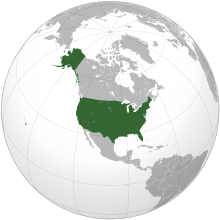Obama-Romney: Who Can Better Manage The Same Old World? – Analysis
By B. Raman
The third and the last US Presidential debate, a fortnight before the polling day, was held on Monday evening in the US.
It was supposed to have been devoted almost exclusively to foreign policy, but economic issues kept intruding into the debate quite often and sometimes in a substantive manner.
Even before the debate, it was known that Mr.Mitt Romney, the Republican challenger, is weak on foreign policy issues. He did remarkably well in the first debate which was totally devoted to economic and social issues. He, therefore, kept bringing in economic issues in context and out of context and President Barack Obama found himself forced to react to him in kind.

On purely foreign policy issues, Mr. Obama did much better than Mr. Romney, but even then he could not cross the 50 per cent mark in terms of support from the sample voters ( 48 per cent) polled by the CNN after the debate.
After the conclusion of all the three debates, it is evident that while Mr. Romney did overwhelmingly better than Mr. Obama in the first debate on the economic issues, Mr. Obama did better than Mr. Romney in the second and third debates devoted to a mix of the economic and foreign policy issues—-but not overwhelmingly so. The election campaign seems to be moving slowly in favor of Mr. Obama but not yet in a decisive manner.
The Republican camp has reasons to be disappointed by the performance of Mr. Romney in the second and third debates. Mr. Romney is bruised, but not yet beaten beyond recovery.
It was evident that both the candidates came to the debate with the belief that foreign policy issues may not be crucial in influencing the as yet undecided voters on the polling day. In their calculation, it is economic issues that will influence their preferences. Both the candidates were, therefore, looking for an opportunity to bring in the state of the US economy even while debating the state of the world. As a result, the debate became a bit repetitive and stale.
While discussing China, one would have expected them to dwell on questions such as the rapid modernization of the Chinese Armed Forces, the possible threats to freedom of navigation from the Chinese Navy, China’s cyber and space warfare capabilities etc.
Surprisingly, none of these questions were raised in a substantive manner. Instead, they focused on China’s perceived currency manipulation, its continued violation of intellectual property rights and the threat posed to the US industries from their Chinese counterparts. This showed that while purely foreign policy issues like West Asia, Iran, and the Af-Pak decisions preoccupy their minds, the impact of foreign policy on the state of the economy was an equally worrisome issue. The specter of a worsening economy came in the way of the formulation of a clear vision—whether in respect of economic or foreign policies.
When the three debates are taken as whole, it is clear that a fortnight before the polling day, the campaign is shaping up to be a contest between the lack-luster record of an incumbent President and the lack-luster policy vision of his challenger.
This has been a lack-luster election campaign—with no exciting vision for the future articulated by either Mr Obama or Mr. Romney. What they were debating was not how they would usher in a brave new world, but how they would better manage the same old world that they have inherited. In the absence of exciting new ideas and new visions for the future, an incumbent even with a lack-luster record may do better than a lack-luster challenger, who tries to play it safe and is not a risk-taker.
There is no reason for us to feel disappointed that India did not figure in the debate even once. Even the European Union, Japan, South Korea, the ASEAN and Australia did not figure even in passing. This is because these are areas of future opportunities for US policy-making. Monday’s debate was mostly about areas of present concern to the US.

At the end of the day, all that matters is you listen to your heart.. not mine, not theirs, Your’s.
Me myself….I already voted for the President, and it really felt good to have it done and over and secure (in theory. if the local Government’s do their jobs as with any election).
Folks, participating in the Great American Democracy is a true honor and privilege, and if you haven’t already I totally encourage you to get your vote in tomorrow or as soon as possible if you are in a state that allows you to (if not, ask why your state is dragging behind and get on your rep’s for next election).
Do not wait until the last minute.
Take your time, get it filled out CORRECTLY and neatly for your candidates. Bring a friend who needs a ride and is registered. Ask your family if they have their ballots in yet.
Vote vote vote.. Millions like me already have and millions more will continue to do so before that ‘one ‘use it or lose it’ day’…
Don’t wait, PARTICIPATE.. you will tell your grand kids about this one some day.